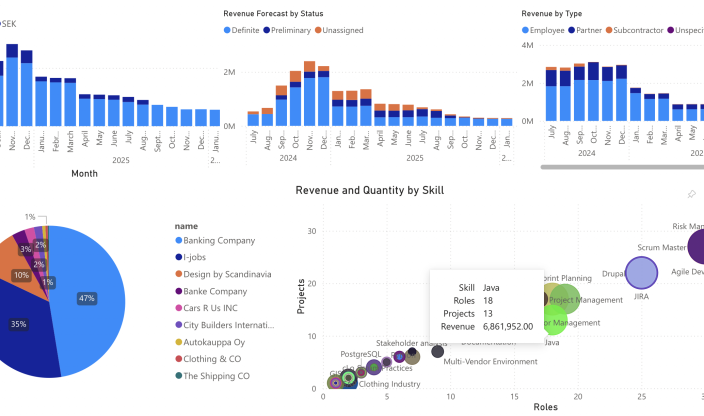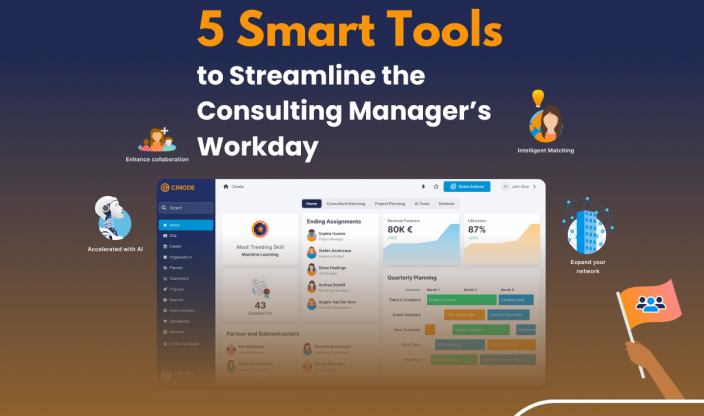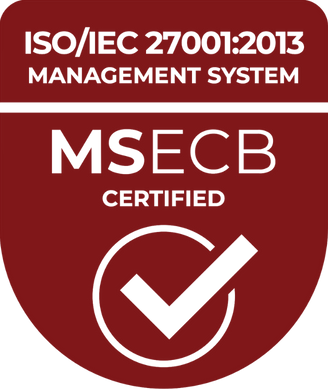The advantages of digitizing your consulting process

In today’s rapidly evolving business landscape, staying ahead of the competition requires constant adaptation and innovation. One of the key areas where businesses can gain a significant edge is by digitizing their consulting process.
Digital transformation has become a critical component of success in various industries, and consulting firms are no exception. In this article, we will explore the advantages of digitizing your consulting process and how it can lead to increased efficiency, improved client relationships, and ultimately, greater profitability.
The Digital Consulting Revolution
The traditional consulting model often involves extensive paperwork, manual data collection, and time-consuming processes. This outdated approach not only hampers productivity but also limits a firm’s ability to deliver timely insights to clients. However, by embracing digital tools and strategies, consulting firms can revolutionize their operations and offer more value to their clients.
1. Enhanced Efficiency
One of the primary advantages of digitizing the consulting process is the significant increase in efficiency it offers. By utilizing a platform to manage all aspects of your consulting business, including the skills and CVs of your consultants, as well as customer information, projects, contract management and resource planning, you can consistently choose the right consultant for the right project. You will maximize potential, reduce idle time, and delight clients.
In the delivery phase consultants can streamline their workflow, automate repetitive tasks, and reduce the time spent on administrative work. This newfound efficiency allows consulting firms to allocate more time and resources to core consulting activities such as data analysis and strategy development.
Moreover, digital platforms facilitate seamless collaboration among team members, irrespective of their physical locations. This enables consulting firms to assemble cross-functional teams with diverse expertise, ensuring that clients receive the most comprehensive and insightful solutions to their challenges.
2. Data-Driven Insights
Consolidating sales, delivery, and talent data onto a single platform bridges organizational silos, ensuring that everyone in your organization acts based on the same information. Additionally, data insights from your team’s capabilities can guide decisions on upskilling, market positioning, or diversifying offerings.
Digitizing the delivery phase allows firms to collect, analyze, and leverage data more effectively. With the help of advanced analytics tools, consultants can derive valuable insights from large datasets, enabling them to make data-driven recommendations to clients.
By harnessing the power of data analytics, consulting firms can uncover trends, patterns, and opportunities that would be impossible to discern through traditional methods. This not only enhances the quality of their recommendations but also provides clients with a competitive edge in their respective markets.
3. Improved Client Relationships
Building strong client relationships is the lifeblood of any consulting firm. Digitizing the consulting process can play a pivotal role in strengthening these relationships. Digital tools enable consultants to maintain more regular and meaningful communication with their clients. Through webinars, video conferences, and online collaboration platforms, consultants can provide clients with ongoing support and updates, fostering a sense of trust and partnership.
Additionally, digital platforms allow consulting firms to offer clients real-time access to project status, data dashboards, and performance metrics. This transparency instills confidence in clients and reassures them that their investment is yielding tangible results.
4. Scalability and Flexibility
The scalability and flexibility offered by digital consulting tools are invaluable for consulting firms, especially those looking to expand their client base or diversify their service offerings. Digital platforms can easily accommodate an increased workload without the need for significant infrastructure investments. Consultants can also adapt their services to meet the evolving needs of their clients quickly.
Furthermore, the ability to access digital tools from anywhere with an internet connection enables consulting firms to tap into a global talent pool. This allows them to work with experts from around the world, providing clients with access to the best minds in their respective fields.
5. Cost Savings
Digitizing the consulting process can also result in significant cost savings for consulting firms. By automating repetitive tasks, reducing paperwork, and optimizing resource allocation, firms can lower their operational costs. Additionally, digital tools can help firms eliminate the need for physical office space and reduce travel expenses by enabling remote work and virtual meetings.
These cost savings not only improve the firm’s bottom line but also allow consultants to offer their services at more competitive rates, making them more appealing to potential clients.
6. Seamless Collaboration: Oneflow and Cinode Integration
Elevate your contract management with the Oneflow and Cinode integration. Create contracts effortlessly from Cinode objects, negotiate and sign in real-time, and stay on top of renewals with automated reminders.
Enjoy secure version handling for shifting scopes and make a lasting impression on candidates or prospects with professional, interactive contracts. Scale your contract needs effortlessly, futureproofing your business with a streamlined process from creation to delivery.
This integration is more than technology; it’s a catalyst for operational excellence, empowering agile and efficient business practices.
Conclusion
In an era of constant change and disruption, consulting firms must adapt and evolve to remain competitive. Digitizing the consulting process offers numerous advantages, including enhanced efficiency, data-driven insights, improved client relationships, scalability, cost savings, a competitive edge, and better risk management.
As consulting firms continue to embrace digital transformation, they position themselves to deliver greater value to clients and thrive in a dynamic business environment.
By leveraging the power of digital tools and strategies, consulting firms can not only survive but also thrive in the digital age, setting themselves up for long-term success in an ever-changing landscape. Don’t miss out on the opportunities that digital transformation can bring to your consulting practice – it’s time to take the leap into the future of consulting.

Guest blogger: Wouter Wierenga, marketing manager at Oneflow
Guest blogger: Wouter Wierenga, marketing manager at Oneflow
You may also like...
All posts
Oct 10 2025 · Consulting, Entrepreneurship
🚀 The Head of Analysis: Seven Success Factors for Consulting Firms 2025–2030

Sep 10 2025 · Consulting
“It’s About Growing Right – Not Fastest” – Netlight Scales Up with Culture and AI in Focus

Aug 21 2025 · Cinode, Consulting
🚀 A Clear View and Fast Execution – Our Journey with Cinode

Apr 30 2025 · Consulting
Understanding the psychology behind pricing

Apr 15 2025 · Consulting
How to set (the right) price?

Mar 18 2025 · Consulting
How do we charge for the value of our services?

Mar 11 2025 · Consulting
New AI Act: Checklist for Consultants and Consulting Firms

Feb 27 2025 · Consulting
Maximize Insights in Your Consulting Business with Cinode and Power BI

Jan 31 2025 · Consulting
5 Smart Tools to Streamline the Consulting Manager’s Workday

Jan 29 2025 · Consulting
New guide: How to Build Consultant Resumes That Win Clients

Nov 05 2024 · Consulting
Sweden’s most profitable consulting company reveals its secrets

Oct 30 2024 · Consulting
